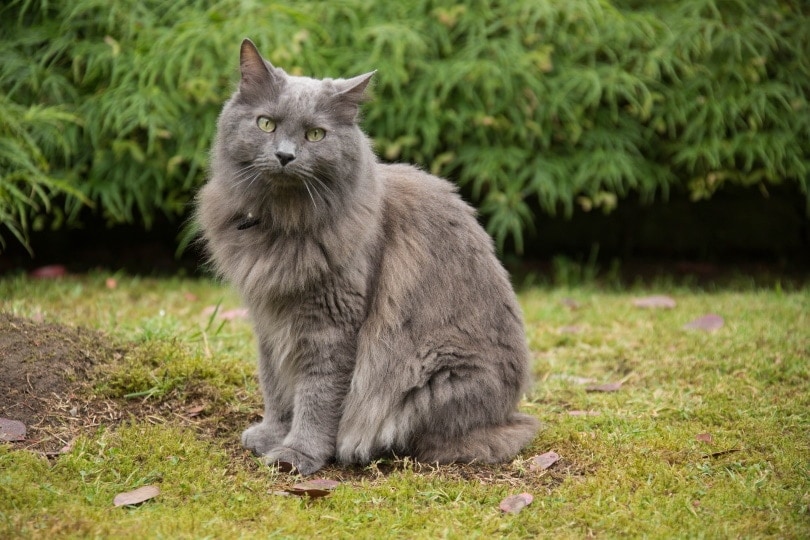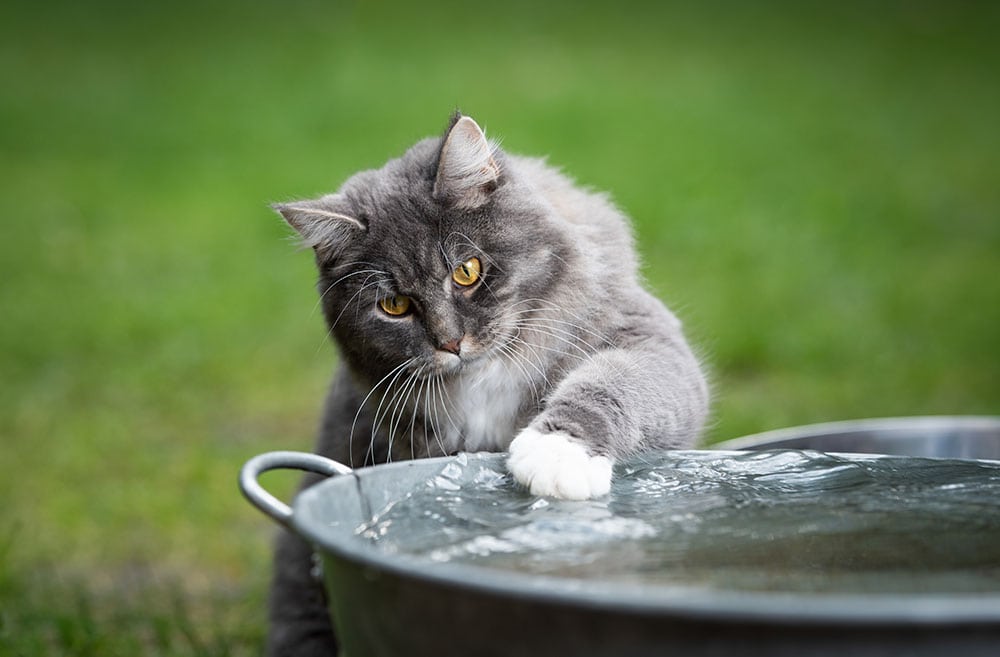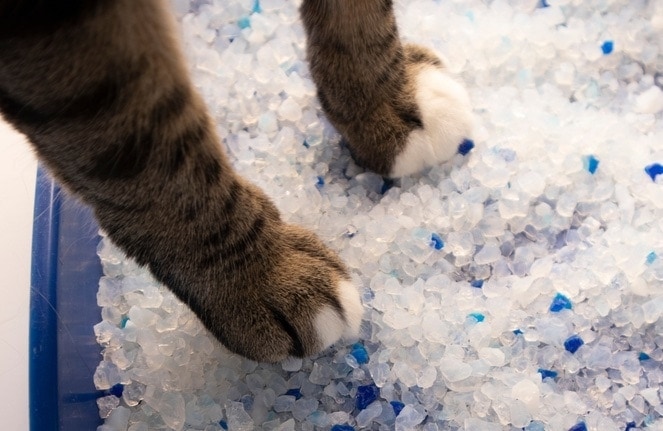Can Cats Eat Spider Plants? Vet-Reviewed Safety Facts
Updated on
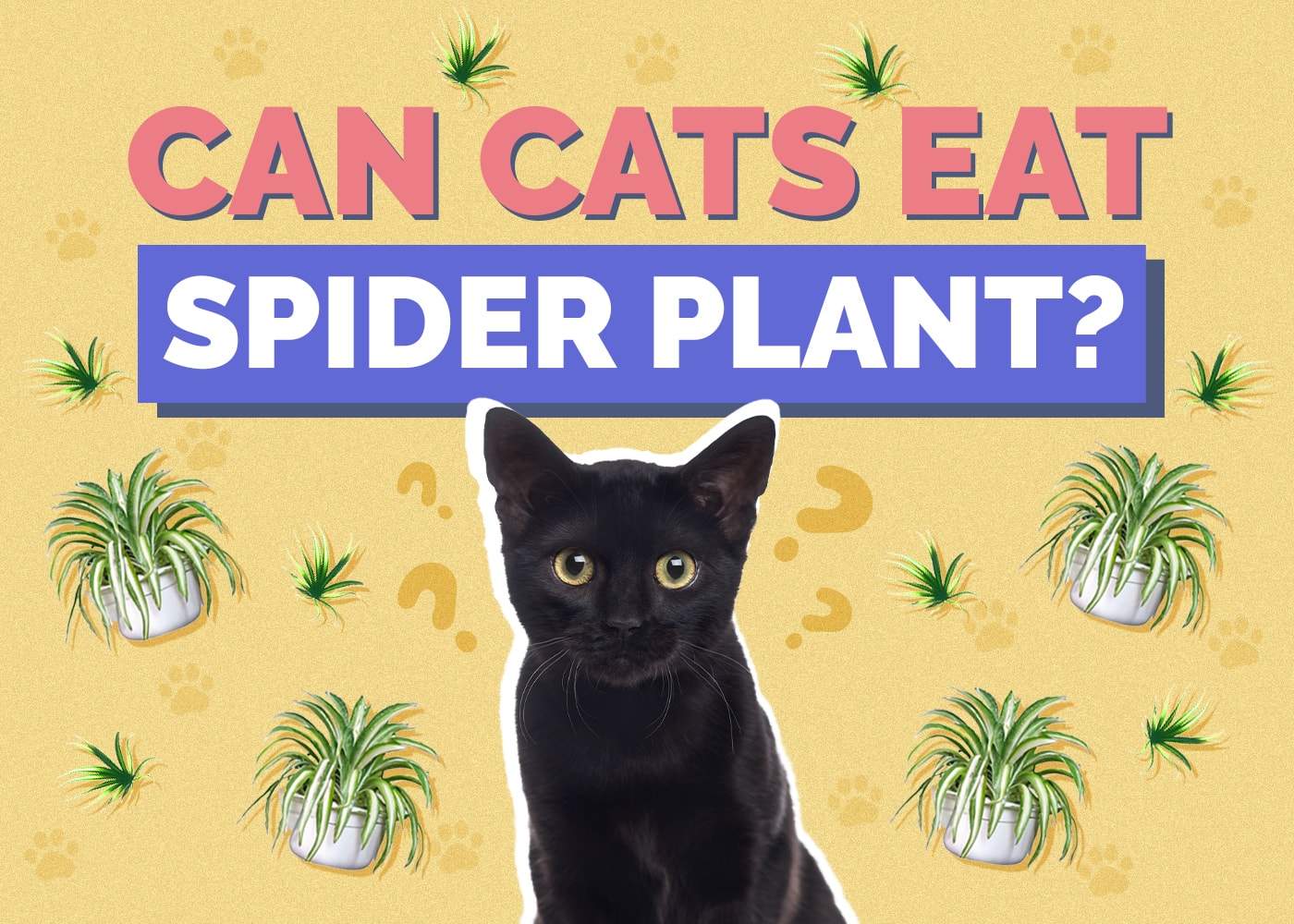
Spider plants (Chlorophytum comosum), a common house plant, are not toxic to cats. Spider plants are typically safe if small amounts are consumed, but can cause some mild digestive upset, according to the ASPCA.1 If your cat does nibble on your houseplant, they shouldn’t experience any major ill effects, but some may experience mild symptoms.
Because these plants are so easy to care for, many people decide to keep them in their homes. They can handle a wide range of light and moisture conditions, so you can place them in different areas. You don’t have to avoid these plants if you have cats. But if you see them eating the plant, it’s best to take them out of their reach.
While the spider plant isn’t toxic, you should keep reading to find out why you may not want your cat eating too much of it.
Why Do Cats Like Spider Plants?
We don’t exactly know! Many pet owners note their cats are particularly drawn to spider plants. There isn’t much information out there about why this happens, but there are a few thoughts on the matter. Some people think cats like the plant because they smell nice, which may be the case. While spider plants aren’t necessarily fragrant to us, cats have a more sensitive sense of smell. Therefore, they may pick up on scents that we don’t.
The plant may simply provide a source of entertainment for bored housecats. It isn’t unusual for them to eat grass from outside, so your houseplant may provide a similar source of entertainment. After all, the grass does hang in a fun sort of way! Some cats seem more drawn to the spider plant than others, so it may be a personality thing. Of course, this may vary from cat to cat. Age may also be a factor, and some younger felines may like the plant because they tend to be more playful.
Finally, there is a chance that cats like how the plant makes them feel. It may cause a mild hallucinogenic effect if ingested. Therefore, cats may simply be drawn to it because it makes them feel good—a bit like how catnip makes them feel.

What Happens If My Cat Eats Spider Plants?
If your cat consumes this plant in small amounts, they may only experience mild stomach upset, if anything at all. However, if they eat it in large quantities, you may notice them acting a bit strange. As mentioned earlier, this unusual behavior may occur because the plant contains chemical compounds that cause some felines to experience hallucinogenic effects.
Another possible response if too much is eaten is they may experience digestive issues. This can be true for nearly any plant out there. Your cat simply wasn’t designed to digest grass. Therefore, if they eat too much, their digestive system is going to complain.
Your cat may vomit or have diarrhea after eating a large amount of the spider plant. Luckily, these problems should be minor. The symptoms should pass rather quickly. There are some kitties that may already have stomach issues, so they may not bounce back as easily. If there is any concern that your cat is not feeling well after eating the spider plant, please have them evaluated by your veterinarian.
It should also be noted that there is a potential for this plant to cause an intestinal blockage if enough is eaten. So if you have spider plants that your cat has access to, and they are experiencing symptoms like vomiting, diarrhea, and/or lack of appetite, it’s best to bring them to your vet to be examined.
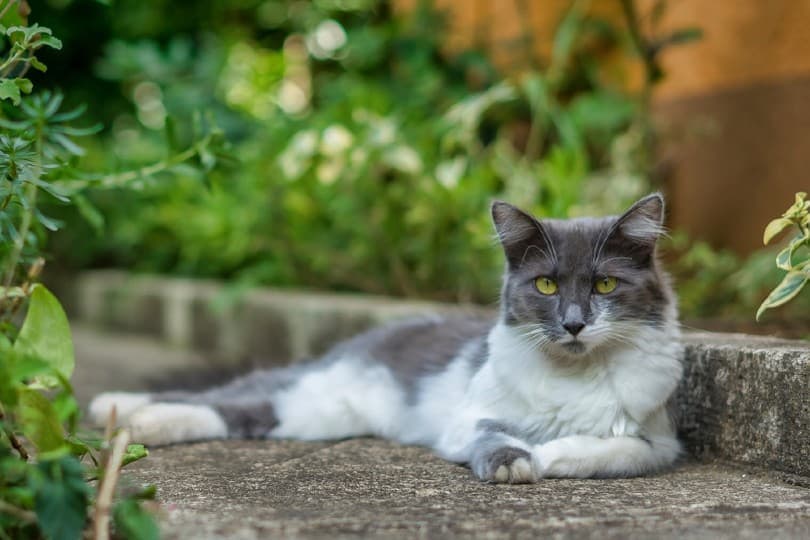
How Do You Stop a Cat from Eating Spider Plants?
There are several ways you can prevent your feline from eating your spider plant. Consider hanging it up high. This may prevent them from getting to it. Of course, cats are very good climbers, so you may have to hang it in a hard-to-reach place. Hanging baskets are specifically great for this reason. Your cat likely isn’t able to get to a suspended basket in the same way that they can climb on a shelf.
If your cat just wants to eat greens, you may be able to get safe, edible plants as a distraction. You can place these plants where the spider plant used to be, moving the latter plant somewhere out of reach. Sometimes, simply putting the plant somewhere that’s hard for your cat to get is all you need to do.
You can find edible cat grass at most pet stores. This small, easy-to-grow plant is safe for cats and is a good alternative to the other houseplants that cats tend to snack on. Make sure to check out the ASPCA’s list of toxic and non-toxic plants before you start shopping for any new greens.

Conclusion
We don’t know exactly why some cats are attracted to the spider plant, but we do know that some love it! These plants are pretty safe for cats. They can, however, experience hallucinogenic effects and GI upset if enough of it is ingested.
For this reason, if you see your kitty consuming large amounts of the plant, it may be best to move it to an area out of their reach. Also consider other alternative plants, grasses, and herbs that are safe for them to munch on. If you have concerns about your cat showing symptoms after eating from a spider plant, please consult with your veterinarian.
See also:
- Are Majesty Palms Toxic to Cats? 3 Tips for Keeping Cats Out of Plants
- Are Yucca Plants Poisonous To Cats? What You Need to Know
Featured Image Credit: Bozhena Melnyk, Shutterstock


